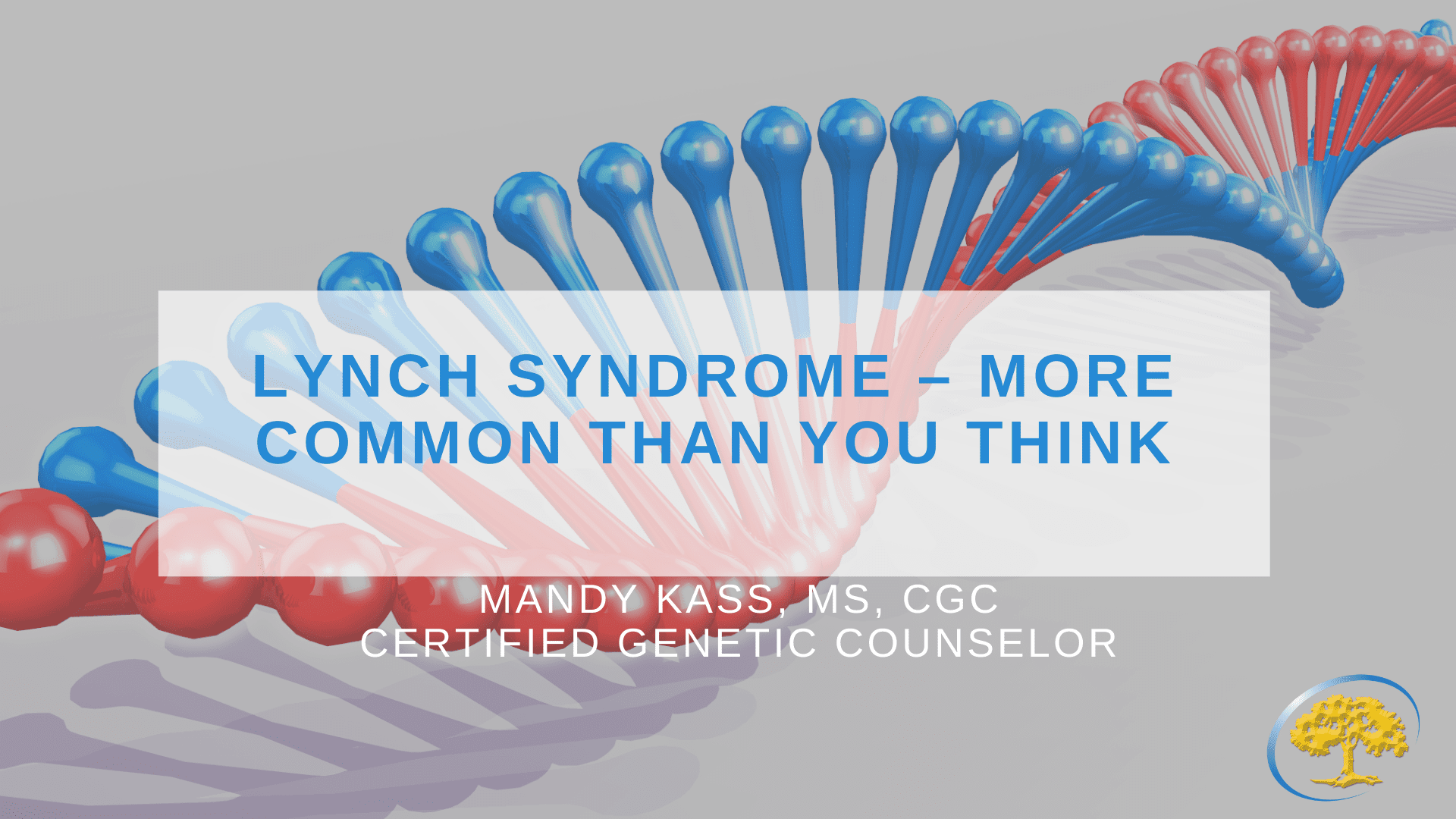
Posted 4 years ago
Lynch Syndrome – More Common Than You Think
Over the years, the BRCA1/2 genes, which are genes associated with hereditary breast and ovarian cancer, have received a lot of media attention. But hereditary risks of colon cancer are often not as routinely discussed. Lynch syndrome impacts as many as 1 out of every 280 people in the U.S. It is the most common form of hereditary colorectal cancer, yet many people may not even know they have it.
Lynch syndrome is a genetic condition that leads to a high risk of developing several cancer types, including colorectal cancer and uterine cancer. It is caused by a genetic mutation in an individual’s mismatch repair (MMR) genes. MMR genes are inherited from your biological parents and they work in your body to check each new copy of DNA for errors (mismatches). If a mismatch is found, it must be repaired by the MMR genes. If you inherit an MMR gene that is mutated (meaning it is not able to correct these mismatches), then your risk for colon and possibly other cancers may be higher than average. The MMR genes that cause Lynch syndrome when mutated include MLH1, MSH2, MSH6 and PMS2. There is also a fifth gene called EPCAM that has also been shown to cause Lynch syndrome when mutated by turning off the MSH2 gene. It only takes a mutation in one of these five genes to have Lynch syndrome.
Since people with Lynch syndrome have a higher risk of developing certain cancers, it is recommended that increased surveillance and in some cases, preventative procedures be performed. For example, people with Lynch syndrome are recommended to begin colonoscopies at an earlier age and to pursue them more frequently – often every 1-2 years. In addition, some women with Lynch syndrome may choose to purse a preventative abdominal hysterectomy (surgical removal of the uterus) due to the increased risk of uterine cancer. This procedure may also include removal of both ovaries in certain cases. Other screening changes may also be recommended for individuals with Lynch syndrome based on the particular MMR gene that is mutated and/or the family history of cancer.
It is important to know if you or a family member has Lynch syndrome so that healthcare providers can provide more personalized screening and care recommendations. If you have a personal and/or family history of colorectal or uterine cancer, especially if diagnosed under the age of 50, talk to your provider about genetic testing and/or genetic counseling for Lynch syndrome.
Genetic Services Department
As a certified oncology genetic counselor, Mandy works with patients who have a personal and/or family history of cancer to assess their risk of having an inherited cancer predisposition. This information allows for the pursuit of early detection or possibly prevention of certain cancer types.
The ultimate goal of cancer genetic counseling is to empower patients to use their personal risk information to better inform treatment and management decisions and to educate family members on their possible cancer risks.

